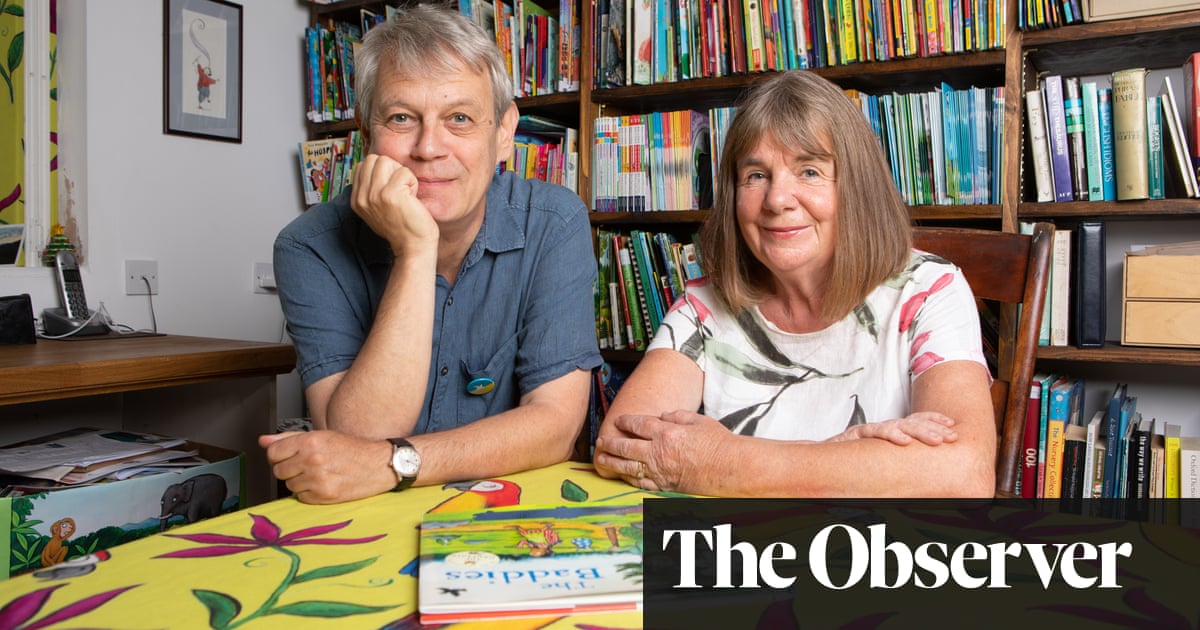Original British art and creative skill is in peril thanks to the rise of AI and the government’s plans to loosen copyright rules, some of the UK’s leading cultural figures have said.
More than 2,000 people, including leading creative names such as Mark Haddon, Axel Scheffler, Benji Davies and Michael Rosen, have signed a letter published in the Observer today calling on the government to keep the legal safeguards that offer artists and writers the prospect of a sustainable income.
The urgent plea, highlighting the impact on books, comes after stars including Sir Elton John, Joan Armatrading and Simon Cowell sounded the alarm about the effect on the music industry of the impending copyright exemption. John predicted the proposal “would devastate our creative community”, while helping “powerful foreign technology companies”.
The letter specifically targets a clause of the government’s upcoming AI Opportunity Action Plan, which argues that an end to copyright restrictions and intellectual property law is needed to allow greater data-mining of artwork and writing.
The signatories say they understand the government aim of boosting growth, but describe themselves as “staring in astonishment” at Whitehall’s eagerness “to hastily wrap our live’s work in attractive paper as a welcome gift to automated competitors”.
“Imagine asking ChatGPT to generate your child’s artwork instead of asking the child. And then sticking that on the fridge. It’s a horrible thought, isn’t it?” said children’s book author and illustrator Ged Adamson.
“Why then are we scooping up creativity en masse to build something without any soul that will rob us, not only of income, but maybe eventually our ability to think creatively?
“The idea that all this work and dedication and honing skills was ultimately just to make tech billionaires even richer – it makes me feel sick, angry and depressed.”
His fellow author Davies said he fears that “the basis of an entire creative culture” is on the point of being sold off. “They’re not even bothering to tell us it will benefit us in the long run because they know that it won’t,” he told the Observer.
“Copyright protects individual creative output and this proposal rides roughshod over that. I’m so disappointed with this government.”
after newsletter promotion
By making the wishes of AI developers a priority and relying on an “opt-out” scheme to protect their work, the campaigners say it would be easy to scrape everything else uploaded online.
The team working alongside Adamson on the campaign, Simona Ciraolo and Momoko Abe, both illustrators and authors, also emphasise the value of fresh creative work to the wider economy, aside from the pride and pleasure it generates.
Employing about 2.4 million people, the sector accounts for more than 5% of gross national product, contributing £124bn. “The big tech mission is to replace our work with their output. The livelihood of workers will become their profit,” said Adamson.
The campaign also aims to dispel popular misconceptions. AI, they argue is not innovative. It can only re-mix the past. It cannot discard old prejudices or develop new positions. “If we do not take steps now to protect and respect the space for human culture, creativity and the creators of the future we may lose what it means to be human entirely,” argues supporter Susie Alegre, the author of Human Rights, Robot Wrongs… Being Human in the Age of AI. “Destruction of cultural heritage is an international crime, in part because it paves the way to inhumanity. Without creatives there is no cultural heritage.”
Another signatory, picture book creator Chris Haughton, insists it is not about being “anti-tech”. “But the way generative AI operates is not at all creatively exciting. It is stealing,” he said this weekend. “If these lobbies succeed in convincing our government we will effectively be handing all the wealth created by the creative industries, hundreds of billions, and giving it all straight to the tech industry.”
Abe argues that the representation of diverse and minority groups will take a step back if AI takes the creative reins. “For BAME people, especially east- and south-east Asian, authors and illustrators, the door to the children’s book industry has finally cracked open over the past five years and some of us have managed to squeeze into the super-competitive world,” she said. “But generative AI will create unfair competition for all creatives, and minority creatives would be the first ones to be squeezed back out.”
Her co-campaigner, Ciraolo, adds that the early mistakes made with social media are about to be repeated if there is no protest and the right voices are not heard. “Nothing of what the government proposed offers a single good thing for us. The consultation was designed to create a sense of inevitability, to put people off objecting to it and make us cave in in advance,” she said, pointing out that artists are far from “jealous gate-keepers of privilege”, but instead are hard-working and badly paid.
“I am worried we are taking away from kids the opportunity to learn the skills that take effort to develop, but give them a lot of confidence and satisfaction. Generative AI looks like creativity, but it robs you of embodied skills,” she said.
Article by:Source: Vanessa Thorpe Arts and media correspondent















